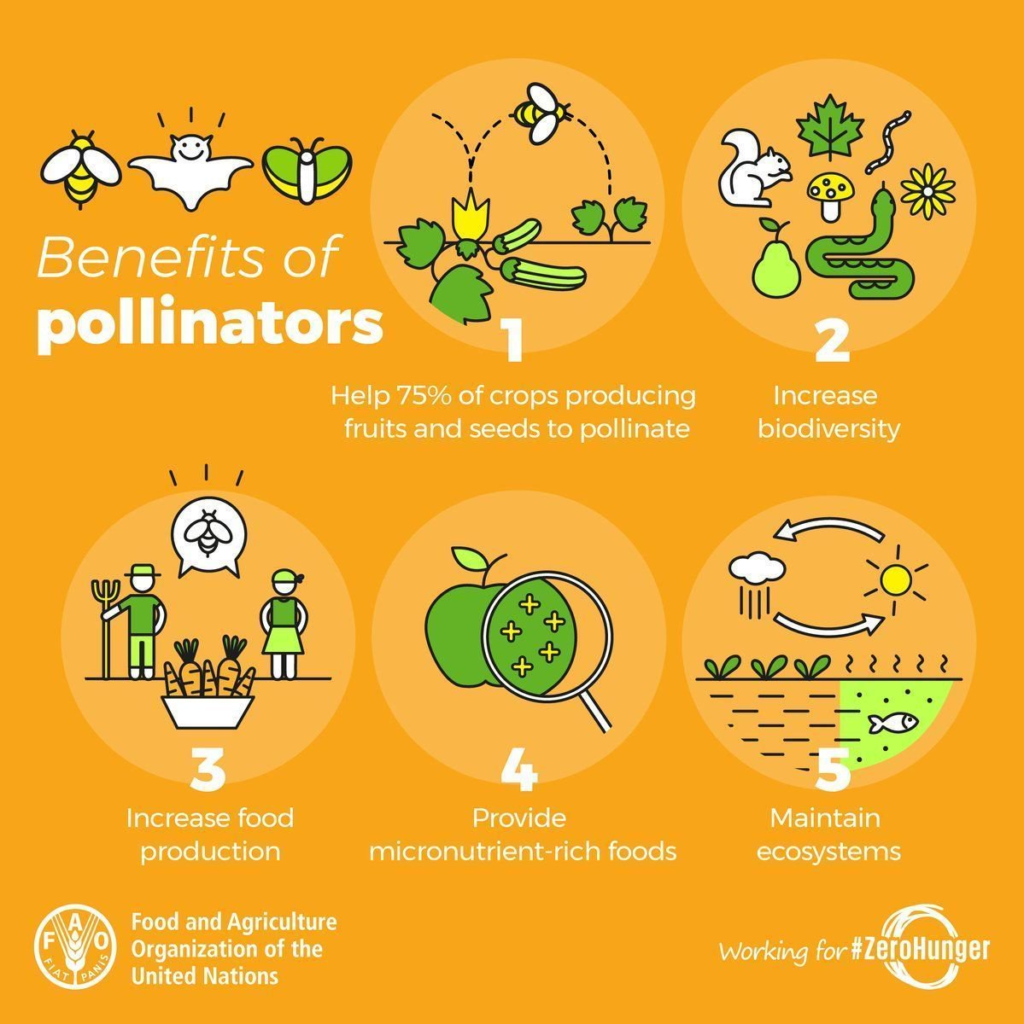- Pollinators like bees are essential to 35% of crop production.
- Foods including coffee, tomatoes and cocoa all depend on them.
- 40% of the world’s insect species are threatened with extinction.
There is an old custom among beekeepers: they must let their swarms know about important events, such as births, marriages or funerals. Failing to “tell the bees” is said to bring bad luck, less honey, deserted hives and even death. It may be folklore, but it is a reminder of the species’ critical role in agriculture and food production.
By carrying pollen from plant to plant, pollinators – of which bees are among the best-known – are instrumental in 35% of global crop production. Nearly three-quarters of crops that produce fruits and seeds for human consumption depend on pollinators to some extent.
Pollination is the highest agricultural contributor to yields worldwide, according to the Food and Agriculture Organization of the United Nations (FAO). Coffee, apples, almonds, tomatoes and cocoa are all on the list of crops that depend on the work of nature’s pollinators.
Small as they are, pollinators will also play a key role in helping to achieve a number of the UN’s Sustainable Development Goals – from tackling hunger and poverty to job creation and economic growth.

Imbalanced diet
The significant decline of bees and other pollinators, which include many insects, bats and birds, is affecting crop yields and nutrition, says the FAO.
As many as 40% of the world’s insect species are threatened with extinction. Dwindling numbers of pollinators are related to a mix of intensive farming, mono-cropping, liberal use of pesticides, climate change and pollution.
The FAO has highlighted that if the trend continues, vitamin-rich crops such as fruits, nuts and many vegetables will be replaced by staples such as rice and potatoes.
Instead of the “five a day” recommended by many countries, we would be left eating a highly imbalanced diet.
And it’s not just us: declining availability of certain crops will adversely affect biodiversity, with an impact on the entire natural ecosystem.
The World Economic Forum’s Global Risks Report 2019 suggests that the global decline in biodiversity overall – with a 60% reduction in species since 1970 – could have repercussions on everything from health and socioeconomic development to productivity and even regional security.
Bucking the trend
To reverse the decline in pollinators, the FAO advocates improving habitats, restricting the use of pesticides, boosting biological pest control and diversifying farms to create a balanced ecosystem for bees and their fellow pollinators.
These improvements have the potential to increase crop yields by a quarter.
Failing to do so will likely mean that “telling the bees” will truly become a thing of the past, with serious implications for the planet.
Source: https://www.weforum.org/agenda/2019/12/protect-pollinators-food-security-biodiversity-agriculture/





